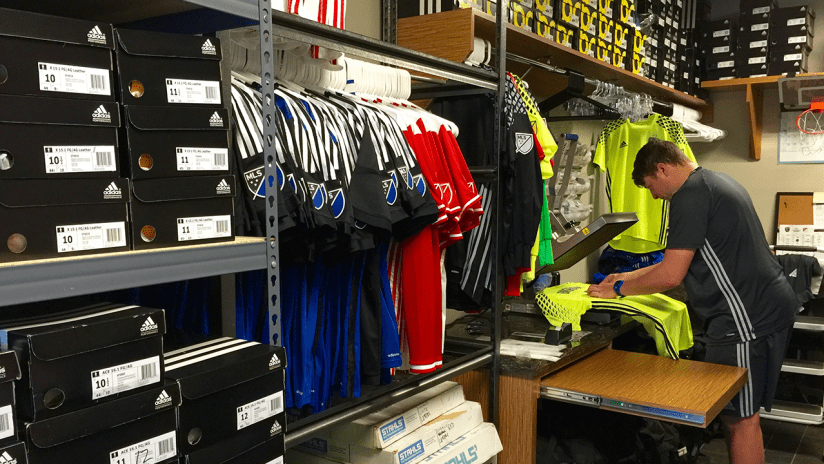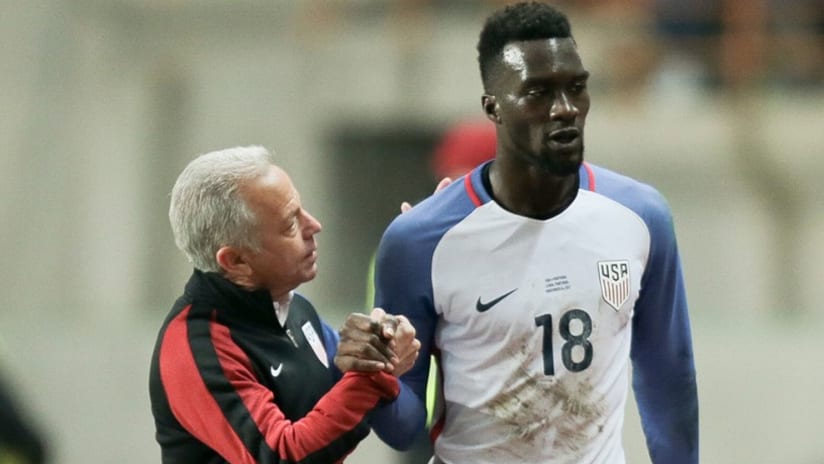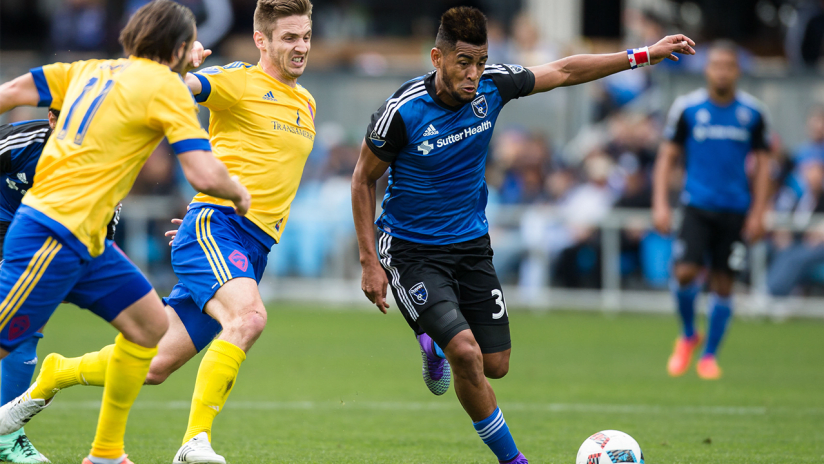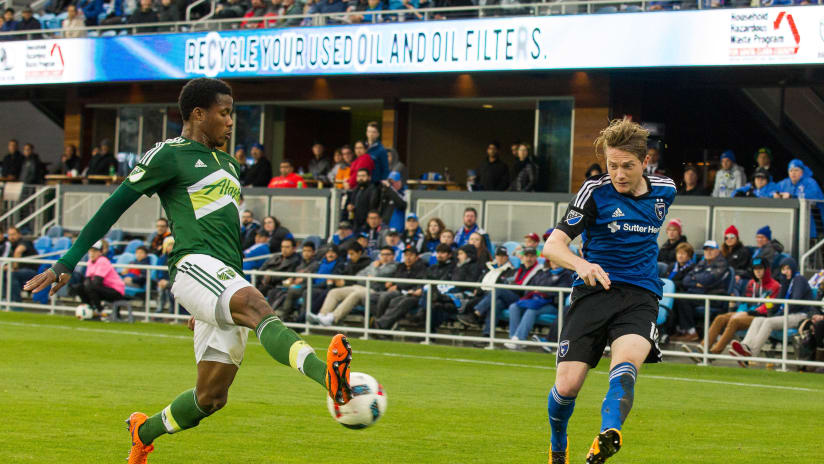Long before a training session, match, or travel day, Andy Dunbar is prepared. Not only does he have to pack for himself, but also for the 28 members of the San Jose Earthquakes first team and its staff. As the club's Equipment Manager he is among the first to arrive at Avaya Stadium everyday close to 8am.
When the players report for another day of training, they arrive to a neatly set locker; their shirts, shorts, socks - any additional equipment they request - folded and laid out meticulously the evening before by Dunbar. Despite laundry and locker setup being completed the day before, and training beginning a couple hours later, he begins his day early "to put out fires". Anything that the players need, whether that be a pair of socks or a new training top, Dunbar is present and ready to provide it to them before they head to the training facility for a workout.
The Earthquakes players always have two short sleeve and two long sleeve jerseys available to them at all times, and they are allowed to give or trade away 5 jerseys throughout the year. Dunbar presses on names and numbers to each of them at the start of the season using a jersey heat press machine. The application of the names and numbers takes just minutes, but with 28 players on the roster, multiplied by 4 available jerseys at a time, things can begin to add up.
These sparkling clean kits always look just so, but they are often far from brand new. Stain-removal solutions are abundant in Dunbar's arsenal of cleaning tools. His biggest enemy? Grass stains. With a primarily white away kit, a whole lot of scrubbing keeps the Quakes looking fresh on the road.
He got his start interning for the North American Soccer League's Carolina RailHawks Front Office while he attended North Carolina State University. Following his graduation, he was offered a full-time Equipment Manager position with the club, a position which did not exist prior to him. Without a book of guidelines he had to create the job description as he went. For five years, he held and developed the position.
"It's a different world being at the Major League level," says Dunbar. "We just didn't have as many resources [in the NASL]. When I first got here it was a little overwhelming with the amount of stuff I was dealing with, but I think I figured it all out."
In 2014, WakeMed Soccer Park in North Carolina hosted a United States Women's National Team Send-Off Series game. As the local equipment manager, Dunbar was recruited to help out with the match. Making a connection with their staff, he was later asked to join the team for a three week camp in Brazil in the winter ahead of their 2015 FIFA World Cup triumph.
"It ended up helping me out a lot with this job," he added. "The amount of stuff they travel with is pretty crazy, especially on an international trip. It was cool to see how they keep track of all that stuff."
When Head Coach Dominic Kinnear was offered the job in San Jose for the 2015 season, he was looking for an equipment manager. He was referred to Dunbar because of his involvement in the Brazil camp, and after one phone call, he was on his way to California.
It's fair to say this was a life-changing event for him. He had never traveled with a professional club to away matches or ordered and managed equipment inventory, let alone lived outside of North Carolina.
Managing a professional soccer club's equipment has it's repetitive qualities, but traveling around the country to new cities throughout a long MLS season brings a refreshing aspect to the job.
"Going to Yankee Stadium [to play NYCFC] was a once in a lifetime experience," Dunbar said. "Not too many people get to be in the clubhouse and go out onto the field. I called my dad from the outfield and said 'you won't believe where I am right now.' Last year was my first time at all of these places."
"I'd have to say, one of my favorite parts about the job is getting to know the players on a personal level," said Dunbar. "You get to know the guys as friends rather than watching them on TV. People would say they're just regular guys, but they really are just regular guys. Especially this team we have here. Everyone is very down to earth. I'm very lucky to be able to come here to work every day."
As the Quakes return to the familiarity of Avaya Stadium, Dunbar returns to his kit room, back to his routine, putting out fires, replenishing inventory, and taking good care of those illustrious black and blue jerseys.





